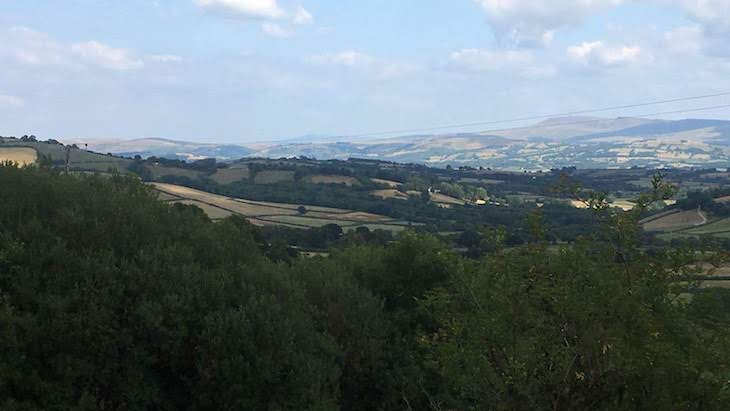
Exploring the Impacts of Brexit for Protected Food Names PFN in the UK
Funder
Coventry University Early Career Researcher Pump Prime Funding
Value
£9,755
Team
Luke Owen, Donna Udall, Alex Franklin, Moya Kneafsey
Duration
12 months, starting January 2018
Project objectives
Since the inception of EU Protected Food Name Schemes in the early 1990s, producer groups and food and drink sector stakeholders have organised and collectively worked to acquire one of three ‘quality’ marks that legally recognises and protects their food and drink products from imitation. This protection is awarded by way of a product’s quality attributes, links to a specific region or place, and/or traditional, artisanal production methods.
Sometimes referred to as ‘Geographical Indications’ (GIs), the three specific EU PFN schemes that a producer or association may apply for are as follows: ‘Protected Designation of Origin’ (PDO), Protected Geographical Indication (PGI) and ‘Traditional Speciality Guaranteed’ (TSG). Each scheme demands specific criteria about the geography, history, production process and ‘terroir’ of a product. As well as protection from imitation, the PDO, PGI and TSG schemes have enabled producers who have acquired them to access markets both domestically and throughout Europe, sustain typically rural livelihoods, landscapes, traditional food and drinks, and to showcase a region’s cultural heritage.
There are now over 1,000 PFNs in the EU, with 86 PFNs in the UK (as of August 2018). These include some well-known ‘quality’ and ‘speciality’ products such as Welsh Beef and Lamb, Stilton Cheese, Cornish Pasties and Melton Mowbray Pork Pies. However, there is uncertainty surrounding the governance and regulation of both existing and prospective PFNs once the process of exiting the EU is completed. It is at this juncture where our research is situated.
This research aims to explore the potential impacts and opportunities associated with Brexit for UK PFNs, and to create policy recommendations at the UK member state and national devolved scale for the future governance of PFNs.
We will examine the current relationships that UK PFN stakeholders have with EU Protected Food Name Schemes (i.e. PDO, PGI, TSG), and investigate the possible role these certifications may have for the UK post-Brexit. The project has four primary objectives:
- Collect evidence on the context, theory and causes for Brexit from the perspective of UK PFN producers and stakeholders, and determine the perceived implications and consequences of Brexit on PFNs.
- Explore the perspectives of UK PFN stakeholders about the impact and opportunities associated with Brexit, specifically in relation to the PDO, PGI and TSG schemes.
- Develop key policy recommendations to inform debates about appropriate post-Brexit strategies for UK PFNs.
- Disseminate research findings and recommendations to engage a wide audience, generate impact and contribute to broader Brexit debates about the role of PFNs for sustainability, resilience and rural development.
Impact
This project has been designed to deliver various types of impact, across different sectors, organisations and academic disciplines. The following four expected outcomes capture how this impact will be delivered:
- Increased capacity for farmers to participate in Brexit agri-food policy processes through the co-creation of the policy briefing paper.
- Inform debates surrounding agri-food policythrough the co-creation of a policy paper for regional and national post-Brexit PFN-related agri-food policies. The dissemination and uptake of these recommendations is key, including targeted media engagements) to widen the impact.
- Increased capacity for university and non-academic (farmers, farmer organisations, Government) partnerships to further collaborate and co-produce evidence to inform debates about effective food policy processes and outcomes. This also encourages a more transdisciplinary approach to research, valuing and drawing on multiple knowledge, practice and expertise systems.
- Contribute to multiple, interdisciplinary academic fields, including food studies, geography and rural development.
Ultimately, we will provide much needed empirical evidence to inform current and future debates associated with Brexit and agri-food policy schemes in the UK.
Project outcomes will shape the trajectories that UK PFNs may need to take as a result of Brexit, and outline the utility of the current EU-wide PFN schemes (i.e. PDO, PGI and TSG).
In addition, this project will enable existing collaborations between Governance stakeholders and CAWR to be strengthened, and for new cross-sector relationships between academia and agri-food institutes to be created. This project will therefore play an important role in leveraging further multi-stakeholder research funding proposals in 2018/19 and beyond.


Project reports
Protected Food Names in Wales
Size: 1 mb




